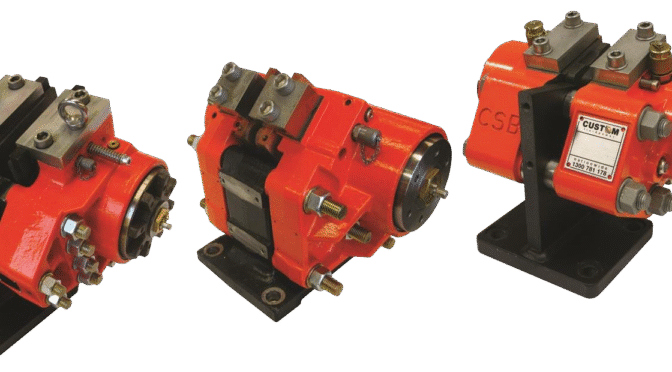News & Insights
Valves and Brakes: Boosting Heavy Machinery Efficiency Across Australia’s Key Industries

Why Valves and Brakes Matter for Heavy Industry
In many of Australia’s major industries — for example mining, marine, wind energy— industrial equipment performance is non-negotiable. At the heart of these operations’ success are two critical components: hydraulic valves and brakes. These systems ensure machinery operates smoothly, safely, and efficiently across tough environments.
Valves manage the flow of fluids and the distribution of power in hydraulic systems, both of which are vital for operational precision and efficiency. Brakes, meanwhile, guarantee safety and control, allowing operators to handle powerful, heavy industrial equipment with confidence. For sectors that depend on consistent uptime and performance, understanding and maintaining these components is essential to maximise operational industrial equipment longevity and safety.
Understanding the Role of Valves in Industrial Equipment
Valves serve as the nerve centre of hydraulic systems, distributing and controlling power by regulating direction, pressure, and flow. In industries like mining and construction, for example, where conveyors, loaders, and drill rigs face extreme workloads, valve efficiency directly impacts operational success.
Common Valve Types in Industrial Machinery:
- Directional Control Valves: Found in all industrial equipment from excavators through to stackers and reclaimers, these valves control fluid pathways for accurate machinery movement. The quality of the valve will determine its performance and longevity, and offerings from premium suppliers like Danfoss Power Solutions and Parker are in high demand for this reason.
- Pressure Control Valves: Protect systems and components from overpressure, such as those used for aircraft ground support and agricultural equipment to ensure reliable operations. Sun Hydraulics are globally recognised as outstanding suppliers of this and many other types of industrial valves.
- Flow Control Valves: Govern actuator speeds via the regulation of fluid flow, necessary for all hydraulic applications from sugar milling to wind turbine control. An exemplary supplier for this application in Australia is Hydac.
Maintenance: Key to Valve Performance
In sectors like transport and defence, unplanned downtime can cost millions. Regular valve inspections, correct filtration, fluid checks, and timely replacements can prevent system failures and extend machinery life. A proactive maintenance strategy ensures your hydraulic systems remain reliable even in Australia’s harshest working environments.
Importance of Brakes in Heavy Industry Safety
While valves control motion, brakes ensure that machine motion can be safely stopped, and control maintained. This is especially critical in mining operations where draglines, shovels and conveyors must halt precisely to avoid hazards, or in wind energy sectors where turbine operation demands controlled equipment stability.
Key Brake Types for Heavy Industry:
- Disc and caliper Brakes: Deliver consistent, high-performance stopping power for equipment from conveyors, wind turbines, mining and marine applications.
- Multi-disc Brakes: commonly found in mobile hydraulic equipment, such as transit mixers, construction equipment, and aircraft ground support.
Brake System Maintenance: A Non-Negotiable
Regular brake pad inspections, hydraulic fluid maintenance, and system tests are crucial for equipment reliability. In all industrial sectors, where safety is paramount, well-maintained brakes reduce accident risks and enhance operational security.
The Power of Engineering in Electro-Hydraulic Control Systems
Modern industrial equipment increasingly integrates electrical control systems into hydraulic machinery. This blend of technologies boosts precision, safety, and efficiency — core advantages in industries like wind energy, mining and construction equipment.
Benefits of Electro-Hydraulic Control in Hydraulic Systems:
- Enhanced Precision: Fine-tuned adjustments with feedback, vital for applications that require precision.
- Improved Reliability: Reduces mechanical complexity and failure points, ensuring smoother operation.
- Increased Safety: Less human error, faster response times, and better system monitoring.
Systems ranging from advanced flight simulators to materials stackers rely heavily on these integrated technologies, highlighting the growing demand across Australia’s industrial sectors.
How to Enhance Equipment Longevity and Operational Efficiency
For industries like mining, agriculture, and defence, extending equipment life while maintaining peak performance is critical for competitiveness and profitability. Simple strategies can make a significant difference:
- Routine Inspections: Early detection of wear and fluid issues prevents catastrophic failures.
- Scheduled Replacements: Proactively replacing valves, filters and brake components reduces unplanned downtime.
- System Integration: Combining hydraulic and electrical control solutions optimises machinery efficiency and productivity.
- Smart Monitoring: overview of system operation can allow for problems to be diagnosed before they lead to costly downtime – or catastrophic breakdown.
The Bottom Line: Protect Your Investment
Keeping valves and brakes in top condition ensures operational reliability in Australia’s toughest industries. Whether you are managing mining excavators, agricultural processing equipment, transport fleets, or marine vessels, investing in smart engineering solutions will pay dividends.
Custom Fluidpower delivers tailored hydraulic and electrical solutions designed to improve precision, reliability, and safety in heavy machinery. Our in-house expertise, combined with our partnerships with only top-quality hydraulic system component suppliers, is the foundation of our success. Discover how engineering in electrical control can transform your operations and extend the lifespan of your valuable equipment.
